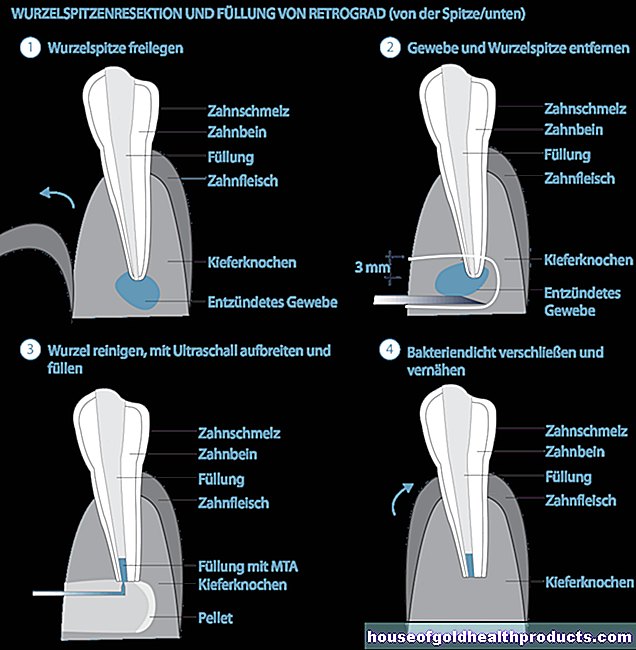Quitting Smoking: The Better Way
All content is checked by medical journalists.Smoking is an addiction - it is accordingly difficult to say goodbye to the glowing stick. Some rely on gradual weaning, others stop completely overnight. Now researchers have investigated which method is more effective.
Stop smoking tomorrow? For nicotine addicts, that's a terrifying thought. Many therefore try to gradually reduce their consumption. By slowly weaning, they hope they have a better chance of maintaining the abstinence. In contrast, most smoking cessation programs recommend an abrupt end to consumption. British researchers have now investigated which method works better.
Addicted to cigarettes
The team led by Nicola Lindson-Hawley from Oxford University was able to attract almost 700 smokers to the experiment - men and women. They all intended to quit smoking. On average, at the start of the study, they smoked one packet of cigarettes a day. In the so-called Fagerström test, with which the degree of nicotine dependence can be determined, they achieved an average point value of 6 and were therefore considered highly dependent.
By chance, those willing to quit were divided into two groups: one practiced abruptly smoking cessation, the other should gradually reduce their consumption. In the first week they only smoked half as much as before, in the second only a quarter of the original amount of cigarettes.
Abruptly quitting smoking works better
The reduction was apparently easy to manage at first. But only 39.2 percent of this group of participants managed to give up cigarettes completely after four weeks. The participants who immediately quit smoking succeeded much better: 49.9 percent of them were completely smoke-free after four weeks.
This difference persisted in the long term: after six months, 22 percent of those who had immediately reduced to zero cigarettes were still abstinent. In the other group it was only 15.5 percent. Those who stop smoking overnight have a better chance of success, both in the short and long term.
This also applied to those participants who had declared before the experiment that they preferred a slow reduction in cigarettes: Even those among them who by chance had classified as quitting immediately succeeded in doing without.
20 million smokers in Germany
According to the Federal Ministry of Health, smoking is the greatest avoidable health risk in Germany. Around 30 percent of adults in this country smoke - that's around 20 million. 33 percent of men smoke and 27 percent of women.
Source: Nicola Lindson-Hawley et al .: Gradual Versus Abrupt Smoking Cessation: A Randomized, Controlled Noninferiority Trial Ann Intern Med. Published online 15 March 2016 doi: 10.7326 / M14-2805
Tags: sex partnership pregnancy elderly care





























